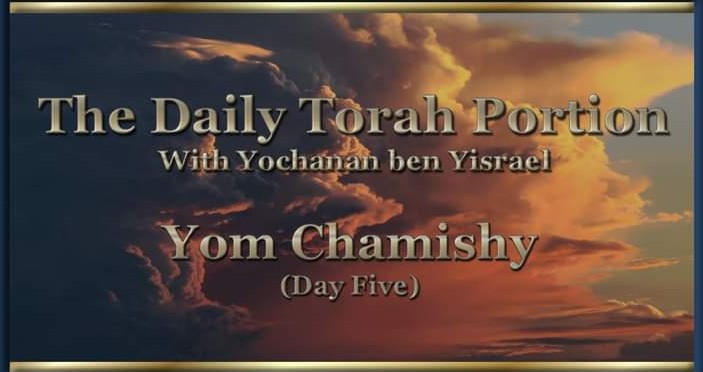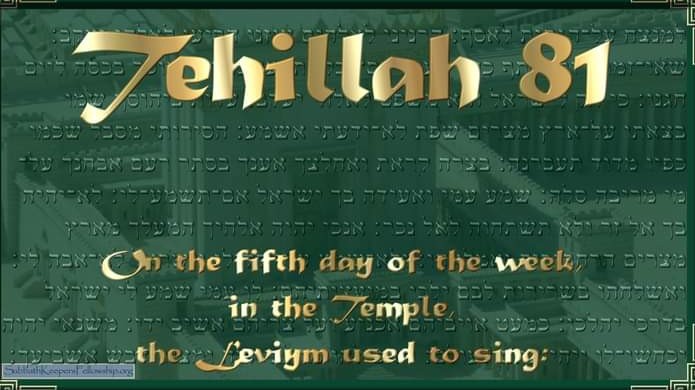Watch
Events
Articles
Market
More
Sabbath Keepers Fellowship & Prison Ministry
Min Hazaqen Torah Study Group
Christi Banks
Yochanan Ben Yisrael
13 Sh’moth – Day 5
Sh’moth 3:16-4:17
“Go, and you shall gather the elders of Yisra’ěl together, and say to them, ‘YHWH Elohim of your fathers, the Elohim of Aḇraham, of Yitsḥaq, and of Ya‛aqoḇ, appeared to me, saying, “I have indeed visited you and seen what is done to you in Mitsrayim; and I say: I am bringing you up out of the affliction of Mitsrayim to the land of the Kena‛anite and the Ḥittite and the Amorite and the Perizzite and the Ḥiwwite and the Yeḇusite, to a land flowing with milk and honey.”’
“And they shall listen to your voice. And you shall come, you and the elders of Yisra’ěl, to the king of Mitsrayim, and you shall say to him, ‘YHWH Elohim of the Hebrews has met with us. And now, please, let us go three days’ journey into the wilderness to slaughter to YHWH our Elohim.’
“But I know that the king of Mitsrayim is not going to let you go, not even by a strong hand.
“And I shall stretch out My hand and strike Mitsrayim with all My wonders which I shall do in its midst. And after that he shall let you go.
“And I shall give this people favor in the eyes of the Mitsrites. And it shall be, that when you go, you shall not go empty-handed.
“But every woman shall ask from her neighbor and from the stranger in her house, objects of silver, and objects of gold, and garments. And you shall put them on your sons and on your daughters, and shall plunder the Mitsrites.”
And Mosheh answered and said, “And if they do not believe me, nor listen to my voice, and say, ‘YHWH has not appeared to you?’”
And YHWH said to him, “What is that in your hand?” And he said, “A rod.”
And He said, “Throw it on the ground.” So he threw it on the ground, and it became a serpent. And Mosheh fled from it.
And YHWH said to Mosheh, “Reach out your hand and seize it by the tail” – so he reached out his hand and took hold of it, and it became a rod in his hand – so that they believe that YHWH Elohim of their fathers, the Elohim of Aḇraham, the Elohim of Yitsḥaq, and the Elohim of Ya‛aqoḇ, has appeared to you.”
And YHWH said to him again, “Now put your hand in your bosom.” And he put his hand in his bosom, and when he took it out, and see, his hand was leprous, like snow.
And He said, “Put your hand in your bosom again.” So he put his hand in his bosom again, and drew it out of his bosom, and see, it was restored like his other flesh.
“And it shall be, if they do not believe you, nor listen to the voice of the first sign, they shall believe the voice of the latter sign.
“And it shall be, if they do not believe even these two signs, or listen to your voice, that you shall take water from the river and pour it on the dry land. And the water which you take from the river shall become blood on the dry land.”
And Mosheh said to YHWH, “O YHWH, I am not a man of words, neither before nor since You have spoken to Your servant, for I am slow of speech and slow of tongue.”
And YHWH said to him, “Who has made man’s mouth? Or who makes dumb, or deaf, or seeing, or blind? Is it not I, YHWH?
“And now, go, and I shall be with your mouth and teach you what to say.”
But he said, “O YHWH, please send by the hand of him whom You would send.”
And the displeasure of YHWH burned against Mosheh, and He said, “Is not Aharon the Lěwite your brother? I know that he speaks well. And see, he is also coming out to meet you. And when he sees you, he shall be glad in his heart.
“And you shall speak to him and put the words in his mouth. And I am with your mouth and with his mouth, and I shall teach you what to do.
“And he shall speak for you to the people. And it shall be that he shall be a mouth for you, and you shall be an elohim for him.
“And take this rod in your hand, with which you shall do the signs.”




Sabbath Keepers Fellowship & Prison Ministry
Min Hazaqen Torah Study Group
Christi Banks
Yochanan Ben Yisrael
Tehillah 81 - Day 5 (Yom Chamishy)
Shout for joy to Elohim our strength; Raise a shout to the Elohim of Ya‛aqoḇ.
Lift up a song and beat the tambourine, The pleasant lyre and with the harp.
Blow a shophar in the New moon, in the covering for the day of our festival.
For this is a law for Yisra’ěl, And a judgment of the Elohim of Ya‛aqoḇ.
He appointed it in Yehosěph for a witness, When He went throughout the land of Mitsrayim; I heard a language that I did not know.
He says, “I removed his shoulder from the burden; His hands were freed from the baskets.
“You called in distress, and I rescued you; I answered you in the covering of thunder; I proved you at the waters of Meriḇah. Selah.
“Hear, O My people, and let Me warn you, O Yisra’ěl, if you would listen to Me!
“Let there be no strange mighty one among you, And do not bow down to a foreign mighty one.
“I am YHWH your Elohim, Who brought you out of the land of Mitsrayim; Open your mouth wide, and I fill it.
“But My people did not listen to My voice, And Yisra’ěl would not submit to Me.
“So I gave them over to their own stubborn heart, To walk in their own counsels.
“O, if My people had listened to Me, Yisra’ěl would walk in My ways, I would subdue their enemies at once, And turn My hand against their adversaries!
“Those who hate YHWH would cringe before Him; And their time of punishment be forever.
“He would feed them with the finest of wheat; And with honey from the rock I would satisfy you.”




Then Herod summoned the wise men secretly and ascertained from them what time the star had appeared.
Matthew 2:7 ESV
Herod summoned them secretly because he didn't want Yeshua's family to hear that he knew any details about his birth. He was extremely jealous and insecure about his throne. Always looking for ways to undermine potential rivals and strengthen his own claims through marriage, politics, and public works. He refurbished and expanded the Jerusalem temple, but also built pagan temples, especially in the north.



So you’ve just returned home from a traumatic experience in a country you love. What’s the first thing you do? How about hold a rally and concert at your state capitol? That’s what the Spear Family of Teshuva Music did when they returned from Israel after the start of the Simchat Torah War. In this final segment of our visit with Sam, Angela, Jonathan, Caleb, and Cyndie Spear, we hear how their love for Israel, especially in this time of trial, translated into action to raise awareness and support, starting in their community in Tennessee.
“Community” is the important word in this podcast. Not only do we hear of it in the music of Teshuva, we also learn from Barry Phillips and David Jones about the importance of community in keeping all the Law.
https://thebarkingfox.com/2024..../01/01/reunion-roadm



So you’ve just returned home from a traumatic experience in a country you love. What’s the first thing you do? How about hold a rally and concert at your state capitol? That’s what the Spear Family of Teshuva Music did when they returned from Israel after the start of the Simchat Torah War. In this final segment of our visit with Sam, Angela, Jonathan, Caleb, and Cyndie Spear, we hear how their love for Israel, especially in this time of trial, translated into action to raise awareness and support, starting in their community in Tennessee.
“Community” is the important word in this podcast. Not only do we hear of it in the music of Teshuva, we also learn from Barry Phillips and David Jones about the importance of community in keeping all the Law.
https://thebarkingfox.com/2024..../01/01/reunion-roadm



The band has just released a new music video!



When Herod the king heard this, he was troubled, and all Jerusalem with him.
Matthew 2:3 ESV
All of Jerusalem heard about the visit and purpose of the Magi and they were all troubled. A new king always means upheaval and possibly war, especially when the reigning king is one like Herod.



https://ffoz.org/messiah/artic....les/jews-reclaim-jes
This is a very interesting article!


